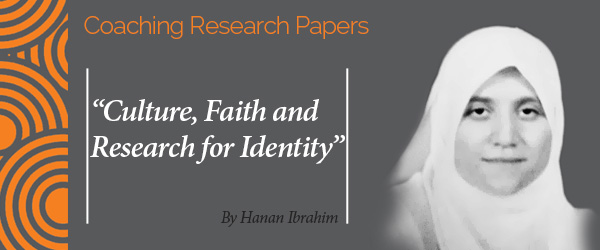A Research Paper created by Hanan Ibrahim
(Youth and Parenting Coaching, UNITED STATES)
Introduction
At the end of our lives, we will not remember how much money we made, how many ball games we watched, or how many things we possessed. What will came back to us in a brilliant and blinding light is the quality of the relationships we formed with those we loved: our friends, our spouses, our children. Dr. Michael H. Popkin
Raising children who are healthy, strong, and confident, who are able to survive and thrive in the society in which they live, who are able to analyze and process information, and who can make sound decisions, presents a tremendous challenge for parents and requires a range of skills from active disciplining to communication and support. Parents nowadays have to keep up with the continuous changes and challenges our societies are facing from illegal drugs, sexual abuse, unfiltered information, online videos, violence in schools and much more. Immigrants, in particular, face even larger challenges as they try to raise their children in such diverse and complex communities far from their home land.
In my case study I would like to offer some insights into the struggles parents and children face and how we as coaches need to be willing to open up and understand other cultures without judgment while trying to respect different views if we want to support our client’s needs and make a difference.
Case Study
Amal is a 14 years old, 1st generation American born. Her father came to the United States 20 years ago, worked very hard, opened a small business, then went back home and married a young woman, brought her as well as his parents to the States to live with them.
As with the majority of immigrants the father worked long and hard hours to support his big family and meet his financial responsibilities. The mother on the other hand, faced immense challenges trying to adapt to her new environment, culture and language, raising her children and taking care of her in-laws with hardly any support from her husband.
The mother surrounded herself with friends and families from the same culture; hardly mastering the language, she spent most of her time and energy doing her best to be sure her children, her husband and the grandparents were all well taken care of. With the help of her in-law, she tried to instill in her children her home culture’s morals and values, unaware of the real pressure and the social gap her children would be facing. Out of her fear to loose her children to Western culture, she imposed too many restrictions, especially with the girls, and as tradition dictates, she gave the boys more freedom.
As a teenager, Amal and her sister, were torn between two contradictory cultures and values: They yearned independence while searching for identity and understanding. Facing tremendous peer pressure and the need for acceptance, things they craved, led to their rebellious behavior. This was especially the case with Amal, the youngest. She started resisting her parent’s culture and faith, rejecting their values, lying, and manipulating them to escape their control. She also chatted [online?] with older men trying to find some guidance and comfort outside of her home, which represented a great risk. She started cutting herself in order to scare them and keep them away from her. She also sneaked out of the house without permission on many occasions.
The gap widened between Amal and her family, especially the mother. Amal felt alienated, discouraged, and depressed. She had very low self-esteem and low self-respect.
The mother was filled with shame and a sense of loss. She didn’t know what to do. She approached me as a community leader to get advice. I requested a meeting to evaluate the situation and see if the case needed coaching or something else like counseling or therapy.
A discovery meeting
I came to the meeting with the intention to fully listen with an open and non judgmental mind. I wanted to create a peaceful and secure place for the mother to express herself. I promised her complete confidentiality and a willingness to be at her service in the best way I knew how.
The meeting was scheduled for 1 hour and 30minutes. She began confiding in me immediately and I did my best to listen objectively but with a great deal of empathy, which helped to build rapport while keeping her relaxed and focused.
Explorative questions
To be able to understand the situation better, I asked her some of these questions:
